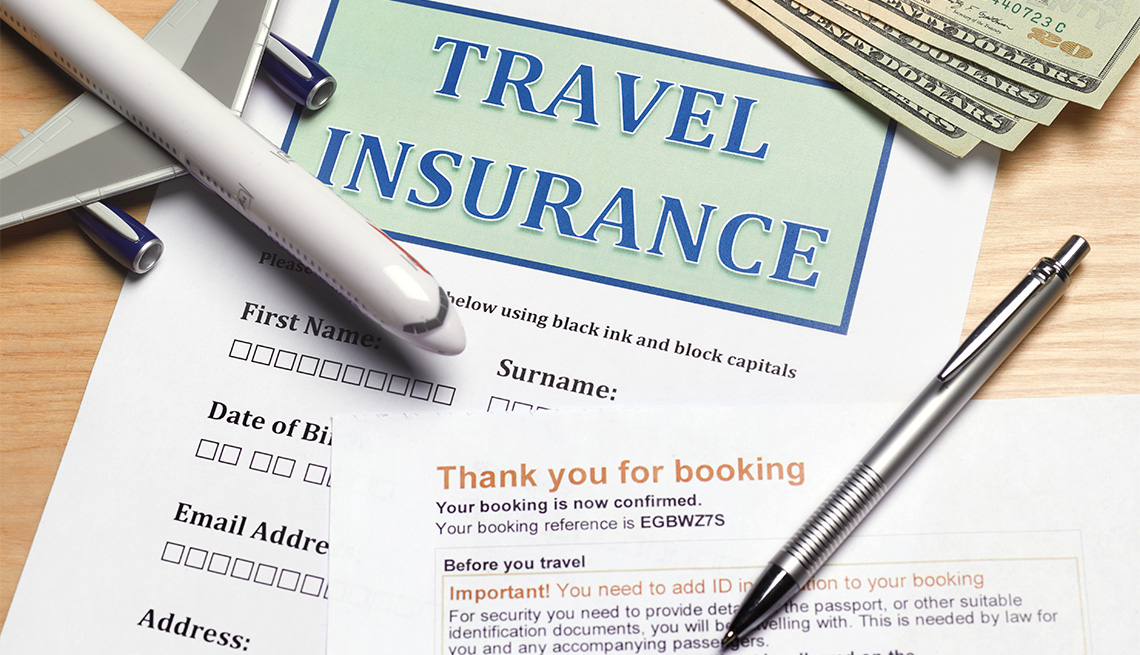Travel insurance is one of those things you don’t think about until you need it – and even then, it can be hard to figure out what kind of coverage you need and how it works. Here’s everything you need to know about travel insurance, including why it’s so important and how to choose the right policy for your trip. If you’re planning a trip soon.If you’re like most people, you probably don’t know much about travel insurance. It seems like an unnecessary expense to pay for something that may not happen, but travel insurance can be worth the price if something unexpected happens to you during your trip (or before or after it, as well). If you know how travel insurance works, you can decide whether or not it’s worth buying or not. That’s why we put together this comprehensive guide on how travel insurance works so that you can decide whether or not it’s right for you and your trip.
What is Travel Insurance
 Before we delve into how travel insurance works, let’s look at what it is. Travel insurance is a product that protects you in case anything goes wrong when you’re on your travels. You can be covered for things like medical emergencies, trip cancellation or interruption, lost luggage, delayed or cancelled flights and more. Many people opt to get travel insurance because they don’t want to deal with financial hardship while travelling—and that makes sense.
Before we delve into how travel insurance works, let’s look at what it is. Travel insurance is a product that protects you in case anything goes wrong when you’re on your travels. You can be covered for things like medical emergencies, trip cancellation or interruption, lost luggage, delayed or cancelled flights and more. Many people opt to get travel insurance because they don’t want to deal with financial hardship while travelling—and that makes sense.
Types of Travel Insurance
There are many different types of travel insurance plans, each with its own pros and cons. Which one is right for you? Below, we break down your options. From there, you can research specific policies to determine which type may be best for your trip. The most common types of plans include medical coverage, cancellation protection and emergency evacuation. Mastercard’s Most Common Travel-Insurance Policies:
1. Medical Coverage – Medical coverage will reimburse you if you or any member of your travelling party gets sick or injured while on vacation. This plan will also cover necessary medical expenses in case an illness arises that doesn’t necessarily require hospitalization but needs special attention, such as chemotherapy treatments or physical therapy sessions.
2. Cancellation Protection – Cancellation protection allows travellers to cancel their trip for any reason and receive a refund on most non-refundable travel expenses.
3. Emergency Evacuation – If an emergency occurs that requires you to be evacuated from your destination, emergency evacuation insurance will pay for all related travel costs up to specified limits. This plan is typically offered in conjunction with cancellation protection or medical coverage. Note that some plans cover only a one-way trip home, while others cover both ways. Also, keep in mind that most cancellation-protection and medical coverage plans do not cover transportation fees during an evacuation or repatriation back to your country of origin.
4. Trip Delay – Trip delay insurance reimburses travellers for additional expenses incurred due to unexpected delays such as mechanical problems or flight cancellations.
5. Baggage Delay – Baggage delay ensures that travellers receive reimbursement if their checked baggage is delayed upon arrival by more than 12 hours, along with compensation equivalent to $100 per day up to $1,000.
6. Missed Connection – Missed connection provides reimbursement if your connecting flight has been cancelled or significantly delayed (more than four hours).
7. Rental Car Damage Waiver (CDW) Protection – Rental car damage waiver offers peace of mind when renting vehicles abroad because it covers accidental damage charges—most credit cards don’t offer similar protections.
8. Trip Cancellation/Interruption Coverage – Trip cancellation/interruption covers any additional costs associated with cancelling or interrupting your trip.
9. Pre-existing Medical Condition Coverage – Those who have certain pre-existing conditions may need pre-existing medical condition coverage in order to book certain types of travel plans.
10. Legal Services – While purchasing travel insurance doesn’t automatically include legal services in case something goes wrong, many providers provide access to legal assistance when filing claims.

Why Do I Need Travel Insurance?
For some, travel insurance is an unnecessary expense. For others, it’s a smart buy that can save them thousands of dollars should anything go wrong. At its core, travel insurance works like any other type of insurance. The main difference is that instead of protecting your house or car from damage and theft, it offers protection against possible hazards you may encounter while travelling. This includes things like medical costs and lost valuables if your trip gets cut short by something unexpected.
Where to Get Travel Insurance
finding affordable travel insurance below for tips on where to look for plans and how much they should cost. You can also search in your region or use an aggregator like Squaremouth which lets you compare prices with one click. Whether you already have coverage or are looking to buy something new, here are some questions to ask when shopping around for travel insurance. You may want basic coverage or more extensive protection based on how often you travel.It’s important to understand how travel insurance works. If you get sick, are robbed or get into an accident, travel insurance can cover emergency medical treatment, help you replace your lost or stolen possessions and get you home on a flight of your choice. But don’t just rely on brochures. Knowing how travel insurance works helps you determine which plan is right for you so that when bad things happen while travelling, your mind is at ease.’, ‘




